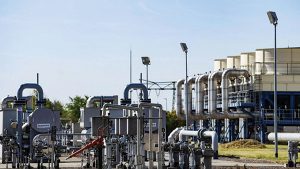Bloomberg
Germany has set out its plan to claw back 90% of the earnings from some clean power generators as the government seeks funding for its consumer aid package.
The government is planning to skim 90% of earnings above €130 a megawatt-hour for solar, wind and nuclear, according to a draft law seen by Bloomberg News. Politicians are trying to reclaim some of the profits that companies like RWE AG are making from high power prices.
The windfall tax will be applied to electricity producers on a sliding scale based on the fuel they use. Lignite plants will be taxed on earnings above €52 a megawatt hour and oil plants €28. The measures will apply for 10 months, backdated to start of September 2022, until end June 2023 and could be extended to end of 2024.
Germany set out a €54 billion package on November 22 that puts a cap on gas prices for companies and households from next year with more earmarked for electricity. The aid for bills will be partly financed by the windfall tax, from which the government expects to raise a double-digit billion-euro amount, according to officials.
The level proposed is lower than the European Commission’s suggested level of €180 a megawatt hour. Renewable generators in Germany have warned that such a levy will deter investment needed to help the nation wean itself off imported fossil fuels.
German Business Out
look Improves
Germany’s business outlook rose from historically low levels as the risk of energy shortages this winter receded and the government in Berlin prepares wide-ranging measures to shield households and businesses from surging costs.
A gauge of expectations by the Ifo institute improved for a second month, rising to 80 from a revised 75.9 in October. That was better than the 77 median estimate in a Bloomberg poll. A measure of current conditions slipped.
Unusually warm autumn weather and gas-storage facilities that are almost at capacity have lowered the likelihood that German companies will face energy cuts in the coming months. At the same time, Chancellor Olaf Scholz’s government is preparing to spend more than 50 billion euros ($51.6 billion) to subsidise gas and electricity, mitigating the hit to incomes from the highest inflation since the creation of the euro.
 The Gulf Time Newspaper One of the finest business newspapers in the UAE brought to you by our professional writers and editors.
The Gulf Time Newspaper One of the finest business newspapers in the UAE brought to you by our professional writers and editors.
